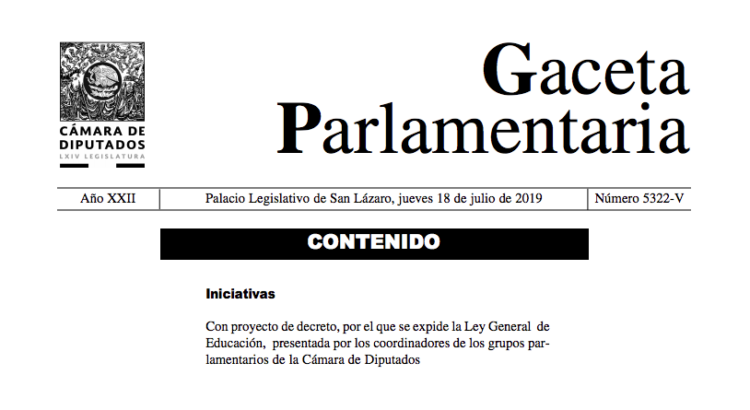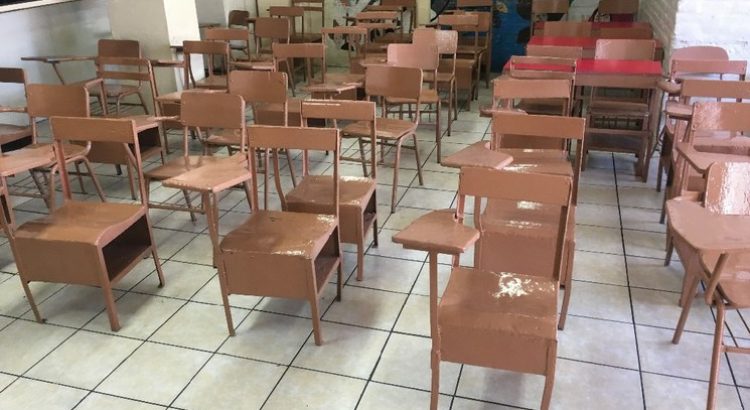América del NOrte/EEUU/universityworldnews.com/
Las redes que representan a más de 7,000 instituciones de educación superior y superior de seis continentes han anunciado que están declarando una «emergencia climática» y acordaron emprender un plan de tres puntos para abordar la crisis a través de su trabajo con los estudiantes.
El plan de tres puntos, publicado en una carta abierta el 10 de julio, incluye:
- • Comprometerse a ser neutral en emisiones de carbono para 2030 o 2050 a más tardar.
- • Movilizar más recursos para la investigación del cambio climático orientada a la acción y la creación de habilidades.
- • Aumentar la enseñanza y el aprendizaje sobre educación ambiental y sustentable en los programas de estudio, campus y programas comunitarios.
La carta dice: “Las mentes jóvenes que están conformadas por nuestras instituciones deben estar equipadas con el conocimiento, las habilidades y la capacidad para responder a los desafíos cada vez mayores del cambio climático. «Todos debemos trabajar juntos para nutrir un planeta habitable para las generaciones futuras y desempeñar nuestro papel en la construcción de un futuro más verde y más limpio para todos».
Organizadores de la carta abierta , la Alianza para el Liderazgo en la Sostenibilidad en la Educación, conocida como EAUC, Estados Unidos. La organización de acción climática Second Nature y la Alianza de la Juventud y la Educación del Medio Ambiente de las Naciones Unidas, basada en los estados, dice que es la primera vez que los establecimientos de educación superior se unen para hacer un compromiso colectivo para enfrentar la emergencia climática.
Se está compartiendo con los ministros clave que se reunieron en Nueva York el 10 de julio en el Evento Global de la Iniciativa de Sostenibilidad de la Educación Superior .
Firmado por universidades, incluida la Universidad Strathmore (Kenia), la Universidad Tongji (China), la Escuela de Negocios KEDGE (Francia), la Universidad de Glasgow (Reino Unido), la Universidad Estatal de California (Estados Unidos), la Universidad Zayed (EAU) y la Universidad de Guadalajara (México), la llamada también está respaldada por las principales redes mundiales de educación, como la Alianza Global y la Iniciativa de Liderazgo Globalmente Responsable, que se han comprometido a cumplir los objetivos sugeridos de neutralidad de carbono.
‘Lo que enseñamos moldea el futuro’
Inger Andersen, director ejecutivo de Naciones Unidas para el Medio Ambiente, la autoridad mundial líder en medio ambiente, dijo: “Lo que enseñamos moldea el futuro. Celebramos este compromiso de las universidades para lograr un clima neutral para el 2030 y para ampliar sus esfuerzos en el campus.
“Los jóvenes están cada vez más a la vanguardia de los llamados a una mayor acción en relación con los desafíos climáticos y ambientales. Las iniciativas que involucran directamente a los jóvenes en este trabajo crítico son una contribución valiosa para lograr la sostenibilidad ambiental «.
Los ejemplos de mejores prácticas para la sostenibilidad en el campus incluyen la Universidad Strathmore de Kenia, que funciona con energía limpia y ha establecido su propio sistema de conexión a la red fotovoltaica de 600 kilovatios, así como la Universidad Tongji en China, que ha invertido significativamente en la entrega de un plan de estudios de educación para la sostenibilidad y Está animando a otras instituciones educativas a hacer lo mismo.
En los Estados Unidos, la Universidad de California se ha comprometido con el objetivo de todo el sistema de convertirse en carbono neutral para el año 2025, mientras que otros, como la American University y la Universidad de Colgate, ya han alcanzado la neutralidad del carbono.
Charlotte Bonner, directora de Organización de Estudiantes para la Sostenibilidad, dijo: “Los jóvenes de todo el mundo sienten que las escuelas, colegios y universidades han sido demasiado lentos para reaccionar ante la crisis que ahora nos afecta.
“Damos la bienvenida a la noticia de que están declarando una emergencia climática; No tenemos tiempo que perder. Pediremos a aquellos que aún no han apoyado esta iniciativa que se unan a bordo. Por supuesto, el elemento más importante es la acción que sigue. »
Diez mil instituciones ‘para inscribirse’
La expectativa es que más de 10,000 instituciones de educación superior y superior se incorporarán antes de fines de 2019, con gobiernos invitados a apoyar Su liderazgo con incentivos para actuar, dijeron los organizadores de la carta.
Además de las tres redes que organizan la declaración, las redes que se han inscrito incluyen la Iniciativa de Sostenibilidad de la Educación Superior, Alianza Global, Red de Ambiente Juvenil del Caribe, Iniciativa de Liderazgo Globalmente Responsable, Alianza de los Estados Unidos para la Educación para el Desarrollo Sostenible, Asociación para el Avance de la Sostenibilidad en Educación Superior, Red de Campus Nórdicos Sostenibles, Red de Congresos Mundial de Educación Ambiental, Red Ambiental de Universidades Sostenibles, Red de Universidades Verdes de China, Red de Campus Sostenibles de Asia y CAS-Net Japón.
La Iniciativa para la Sostenibilidad de la Educación Superior (HESI), una asociación entre los departamentos y agencias de las Naciones Unidas, incluyendo la UNESCO, el Medio Ambiente de las Naciones Unidas y la iniciativa Principios para una Educación de Gestión Responsable del Pacto de las Naciones Unidas, proporciona una manera para que la educación superior interactúe entre la educación superior, la ciencia y la política -hacer en la ONU.
HESI se creó en 2012 en el período previo a la Conferencia de las Naciones Unidas sobre el Desarrollo Sostenible (Río + 20). Con los compromisos de más de 300 universidades de todo el mundo, HESI representó más de un tercio de todos los compromisos voluntarios que se lanzaron en Río + 20.
El Evento Global de HESI para instituciones de educación superior y partes interesadas se llevará a cabo el 10 de julio para coincidir con la sesión de 2019 del Foro Político de Alto Nivel sobre Desarrollo Sostenible para explorar cómo la Agenda 2030 para el Desarrollo Sostenible está cambiando la forma en que funcionan las instituciones de educación superior. y cómo se involucran críticamente con los Objetivos de Desarrollo Sostenible (ODS) de la ONU.
Explorará temas como lo que más universidades podrían ofrecer para desarrollar el conjunto de habilidades y trabajar con los sectores público y privado para crear más empleos de cuello verde; si el sector privado está contratando el tipo correcto de talento joven y las habilidades adecuadas para la sostenibilidad y la transformación de la energía; si las universidades están haciendo lo suficiente para influir en los estudiantes para que adopten estilos de vida sostenibles a lo largo de su vida; y qué incentivos son más importantes para las universidades cuando se trata de comprometerse con la Agenda 2030 y los ODS e invertir en sostenibilidad.
Luchando con el concepto de ‘ecologización’
En un informe publicado en su sitio web, ONU Ambiente advirtió en mayoque a pesar de que los jóvenes están impulsando una alerta mundial sobre el cambio climático y la necesidad de reducir nuestra huella de carbono, muchas universidades están luchando con el concepto y la agenda de «ecologización».
El informe dijo que algunas escuelas y universidades están liderando con el ejemplo y reduciendo las emisiones de carbono, promoviendo la energía renovable y convirtiéndose en «focos de activismo en el tema definitorio para una generación».
Pero «si bien existen algunos ejemplos notables de iniciativas de sostenibilidad universitaria en todo el mundo, existe la necesidad de maximizar los beneficios potenciales alentando su replicación en la mayor cantidad de universidades posible a nivel mundial».
En Kenia, la Universidad Strathmore se dispuso a convertirse en la primera universidad de clima neutro en el país e instaló una planta solar de techo de 0,6 MW para proporcionar energía y reducir su huella de carbono.
El Centro de Investigación de Energía Strathmore está exportando el exceso de energía a la red y se firmó un acuerdo de compra de energía en 2015.
Además, la planta solar se está utilizando como un laboratorio en vivo para capacitar a técnicos para diseñar y mantener dichas instalaciones.














 Users Today : 26
Users Today : 26 Total Users : 35460740
Total Users : 35460740 Views Today : 57
Views Today : 57 Total views : 3419927
Total views : 3419927